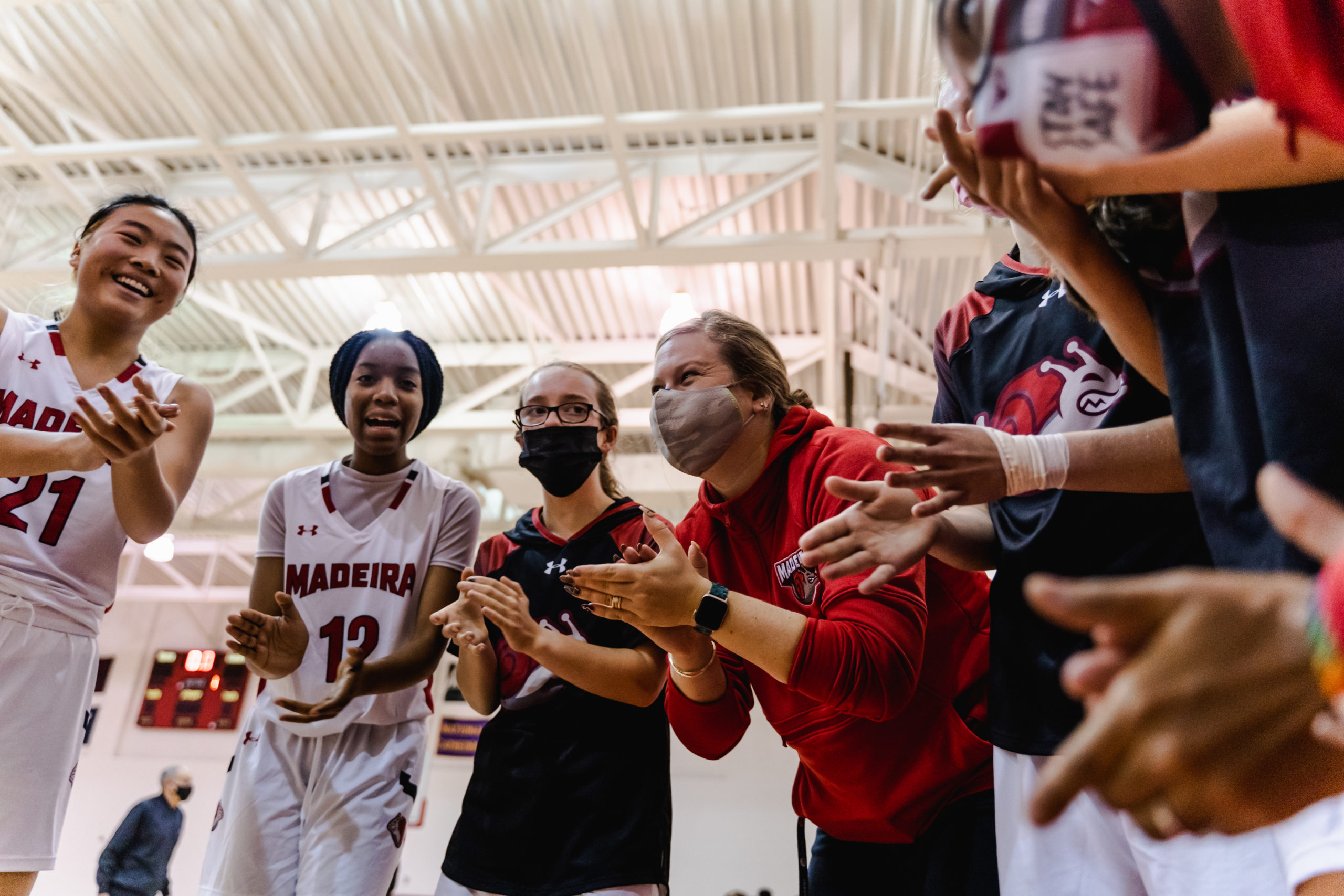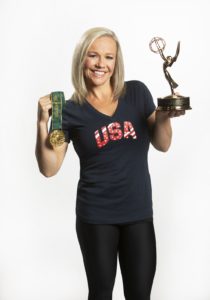Amanda Borden I U.S.A. Olympic Gold Medalist, Gymnastics
Amanda was captain of the U.S. Olympic Gymnastics Team, The Magnificent Seven, which took home the gold medal at the 1996 Olympic Games in Atlanta.
Along with their gold, the team made history by becoming the first U.S. Women’s Gymnastics team ever to win at the Olympic Games. After winning gold, Amanda appeared in numerous national tours and television appearances, and was featured on the Wheaties cereal box. For over 20 years, she has served as a gymnastics and cheerleading commentator for CBS Sports, NBC, ESPN, the Pac-12 Network and Varsity Brands.
Amanda continues to be a motivational speaker to numerous national brands and corporations. Currently, she owns two gymnastics clubs in the Phoenix area and is a member of the U.S. Olympic Hall of Fame and the U.S.A. Gymnastics Hall of Fame. Most recently, Amanda won an Emmy Award for her coverage and color commentary of NCAA gymnastics.
Watch the “Positive Leadership” webinar now.
The following is an excerpt from Amanda Borden’s recent webinar.
Today, I’m going to focus on four specific years of my career (1992–1996.) I was just a 15-year-old gymnast competing to make the Olympic team when I qualified, finishing 7th, which is the final spot for the roster. I was excited; however, three days after this big win, I received a call from the commissioner and all my excitement disappeared when he informed me that they had determined I was not good enough to complete at the Olympics. I was heartbroken, crushed, defeated—and I informed my coach and parents that I was done with gymnastics. They were extremely supportive and told me, “Listen to your heart and you will make the right decision.” About three days later, I came to my decision. I realized I didn’t do gymnastics to be an Olympian. I did it because I loved it. Gymnastics were my passion. So, I headed back into the gym and promised myself that no one would ever take my joy away from the sport. When we love what we do, we work hard. And when we work hard, we see success.
Over the next few years, I was determined to let my passion lead me. I graduated high school and then had to decide if I was going to commit to college or make one more go at the Olympic team. Gymnastics was still my passion and I thrived on the experience of accomplishing something, so I committed to trying to make the team one more time. Over the next year I would be challenged with numerous injuries, including a broken foot and later, a broken hand. My hand injury occurred just months away from the trial and I would like to say I stayed positive during this time. However, it was a huge challenge in that moment. I was mad, angry, frustrated and had a lot of doubt. But I was able to flip a switch and remember that my positivity and gymnastics had led me to this point, and it had already gotten me through other tough moments as well. I decided to focus on the things I could control: my attitude, my effort and my energy.
When it comes to attitude, I could have fixated on all the things I wasn’t able to do, but instead I focused on the positive and that, in turn, affected my effort. When you’re hurt in gymnastics, much like any other sport, you cannot perform repetitions like you previously could. You start to feel like you aren’t getting better, but I stayed positive by focusing on the things I could do, like conditioning—cardio, endurance, flexibility and elements without my hand. I also focused on my diet, PT, getting enough sleep and mental training—visualizing my gymnastics and developing my mind to believe in myself. The third thing I could control was my energy. For me, that meant giving 110% to be my best at whatever I could do. It was also about making my teammates better, because when that culture is elevated, it helps everybody.
After about five weeks, I was back at it and I was better than I had ever been before. My body had recovered and my mind believed that my dream would come true. When I went to Olympic trials, I made a couple of big mistakes on the first day, which put me back in 7th place and those thoughts of doubt creeped back into my head. By connecting with my family and refocusing my mind, I was strong enough to overcome those thoughts. Controlling what I could, I went into day two with a positive attitude and a belief in myself. Finally, I thought, if this is the last meet of my career, I’m going to have fun.
Well, my dream came true and I made the Olympic team. We went on to win Olympic gold, the first U.S. Gymnastic gold. While thousands saw our huge triumph, most did not see the struggle, the frustration and all the things that happened to get us there. Without these challenges, we would not have accomplished what we did that day.
As coaches, we know that struggles make us stronger. But it’s what we do and how we learn from them that determines our success. Everyone has fears and will deal with uncertainties at some point throughout their lives and/or career. I handle those challenges with what I call the three P’s: Passion, Positivity and Perseverance. We will make it! Passion: that is our purpose. Positivity: staying in that positive mindset so we can always move forward. And Perseverance: overcoming the struggles even when that is not the easiest choice. As coaches, you must dig deep. It starts with a passion for why you do what you do. It’s also your job to help your athletes find their passions. Passion is what helps coaches and athletes fuel their fire and stay motivated, and it can drive you to be learners if you stay positive and embrace the process. Lead with passion and positivity, and you can persevere through anything. Challenges are what prepare us for much bigger things to come.
Through the challenges I faced and switching to a positive attitude, I was able to become an Olympian. Now let’s see what you can do.
Watch more of our “Positive Leadership” webinar with Amanda Borden now.


